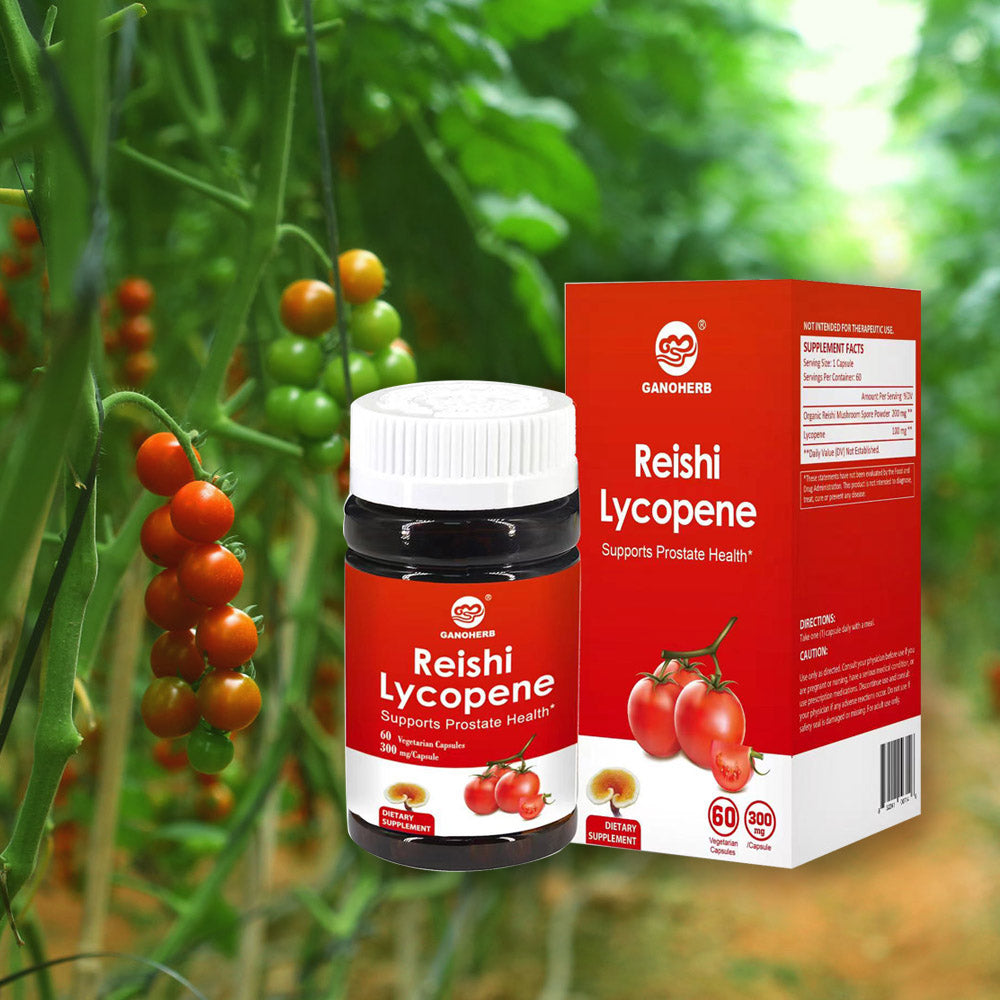Coffee Reishi Mushroom: A Unique Fusion for Your Daily Brew
In recent years, the combination of coffee and reishi mushroom has captured the attention of many, blending the rich, familiar essence of coffee with the earthy notes of reishi. This fusion isn't just a passing trend; it's a fascinating addition to the world of beverages that offers a distinct experience. Whether you're a coffee aficionado or someone curious about new flavors, coffee reishi mushroom presents an intriguing option. This article delves into five key aspects of this blend, from its origins to its modern-day appeal, providing a comprehensive look without focusing on any perceived advantages. By the end, you'll have a deeper understanding of what makes this combination stand out.

1. Origins and Historical Background
The story of coffee reishi mushroom begins with the individual histories of its two main components. Coffee, originating from the highlands of Ethiopia, has been a staple in many cultures for centuries. Its journey from ancient rituals to global ubiquity is well-documented, with coffeehouses becoming hubs of social interaction. On the other hand, reishi mushroom, known scientifically as Ganoderma lucidum, has roots in East Asian traditions. Often referred to as the mushroom of spiritual potency, it was historically valued in contexts like art and symbolism, appearing in ancient texts and artworks as a representation of natural beauty and resilience.
The fusion of coffee and reishi mushroom is a relatively modern innovation, likely emerging in the late 20th or early 21st century as part of a broader movement toward incorporating traditional elements into contemporary products. This blend didn't arise by accident; it was a deliberate effort to marry the robust character of coffee with the unique profile of reishi. Early adopters included artisanal producers and small-scale enthusiasts who experimented with extracts and powders to create a harmonious mix. Today, this combination reflects a blend of old and new, drawing from centuries of cultural appreciation while adapting to modern tastes. Understanding this background helps appreciate the depth behind each cup, connecting it to a rich tapestry of human creativity and natural exploration.
2. Production and Processing Methods
Creating coffee reishi mushroom involves a meticulous process that ensures the flavors and qualities of both ingredients are preserved and enhanced. It typically starts with sourcing high-quality reishi mushrooms, which are often grown in controlled environments to maintain consistency. These mushrooms are then dried and ground into a fine powder or processed into an extract. The extraction methods can vary—some producers use hot water to draw out the soluble components, while others might employ alcohol-based techniques to capture a broader range of characteristics.
Meanwhile, the coffee component is selected with care, often opting for beans that complement the earthy tones of reishi. Arabica or Robusta varieties are common choices, roasted to a level that doesn't overpower the mushroom's subtle notes. The blending stage is crucial: the reishi extract or powder is mixed with ground coffee or infused into brewed coffee, depending on the desired product form. This could result in instant mixes, capsules for brewing machines, or whole bean blends. Throughout production, attention to detail is key, such as maintaining specific temperatures to avoid degrading the ingredients. The final product is packaged to preserve freshness, often in airtight containers that protect it from light and moisture. This careful approach highlights the artistry involved, turning simple ingredients into a cohesive and enjoyable beverage.

3. Flavor Profile and Sensory Experience
One of the most captivating aspects of coffee reishi mushroom is its unique flavor profile, which offers a departure from standard coffee. The reishi mushroom introduces an earthy, slightly bitter undertone that can be described as woody or reminiscent of dark chocolate. This pairs with the inherent qualities of coffee—whether it's the bright acidity of a light roast or the deep, caramel-like notes of a dark roast. The result is a complex blend where the mushroom's robustness tempers the coffee's sharpness, creating a balanced and layered taste.
In terms of aroma, coffee reishi mushroom often emits a rich, inviting scent that combines the familiar coffee fragrance with hints of forest floor and subtle sweetness. When sipped, the texture can vary; if prepared as a brewed beverage, it might have a smooth, velvety mouthfeel, especially if the reishi is finely ground. Some versions might leave a lingering aftertaste that is both grounding and refreshing. This sensory experience is subjective and can evolve with repeated tasting, making it a topic of discussion among enthusiasts. Unlike plain coffee, which might focus solely on caffeine intensity, this blend invites a more contemplative approach, encouraging drinkers to notice the interplay of flavors. It's a journey for the palate, offering a moment of pause in a busy day.
4. Cultural Significance and Symbolism
Coffee reishi mushroom carries cultural weight derived from the histories of its components. Coffee has long been a social lubricant, central to gatherings in places like the Middle East and Europe, where it symbolizes hospitality and community. In contrast, reishi mushroom holds a place in various Asian cultures as an object of admiration, often depicted in literature and art as a symbol of natural elegance and persistence. Its name, reishi, translates to spiritual essence in some contexts, reflecting its role in aesthetic and philosophical traditions rather than practical applications.
The combination of these two elements in coffee reishi mushroom bridges cultural divides, representing a fusion of Western and Eastern influences. In modern settings, it might be served in cafes that emphasize mindfulness or connection to nature, echoing the mushroom's historical ties to tranquility and the coffee's role in social bonding. This blend can be seen as a metaphor for globalization, where diverse traditions come together to create something new and meaningful. By appreciating this cultural layer, users can engage with the product on a deeper level, seeing it as more than just a beverage but as a symbol of cross-cultural dialogue and innovation. It's a reminder of how ingredients can carry stories from different parts of the world, enriching everyday experiences.
5. Modern Trends and Consumer Adoption
The rise of coffee reishi mushroom aligns with broader trends in the food and beverage industry, where consumers are increasingly interested in unique, artisanal products. This blend has gained traction through social media, word-of-mouth, and specialty stores, appealing to those who seek novelty and depth in their daily routines. Its popularity is partly driven by the growing curiosity around functional ingredients, though the focus here remains on the experiential aspects rather than any specific outcomes. People are drawn to the story behind the product—the combination of ancient traditions with modern convenience.
In markets today, coffee reishi mushroom is available in various forms, from ready-to-drink cans to DIY kits, catering to different lifestyles. It's often featured in cafes that prioritize sustainability and ethical sourcing, resonating with environmentally conscious consumers. The adoption curve shows that early users were typically explorers in the culinary world, but it's now reaching a wider audience through online platforms and retail expansions. This trend reflects a shift toward personalized consumption, where individuals curate their experiences based on taste and narrative rather than mere utility. As more people discover this blend, it continues to evolve, with new variations emerging to suit diverse palates. This ongoing innovation ensures that coffee reishi mushroom remains a dynamic part of the beverage landscape.
Coffee reishi mushroom is more than just a blend; it's a testament to human ingenuity and the endless possibilities of combining natural elements. From its historical roots and meticulous production to its distinctive flavor and cultural resonance, this fusion offers a rich tapestry of experiences. As it continues to capture imaginations in modern markets, it invites us to slow down and savor the nuances in our daily rituals. Whether you're trying it for the first time or incorporating it into your routine, coffee reishi mushroom provides a unique perspective on what a beverage can be—a bridge between past and present, flavor and story.
Frequently Asked Questions
Q1: What exactly is coffee reishi mushroom?
A1: Coffee reishi mushroom is a blended product that combines coffee with reishi mushroom, typically in the form of extracts or powders. It results in a beverage that merges the rich, aromatic qualities of coffee with the earthy, slightly bitter notes of reishi. This combination is often enjoyed for its unique taste and cultural background, rather than any specific functional attributes.
Q2: How is coffee reishi mushroom typically prepared?
A2: Preparation methods vary depending on the product. For instant versions, it can be mixed with hot water like regular instant coffee. If using ground blends, it might be brewed in a coffee maker or French press. Some people prefer to add it to other drinks or recipes for a customized experience. Always follow the instructions on the packaging for best results.
Q3: What does coffee reishi mushroom taste like compared to regular coffee?
A3: Coffee reishi mushroom has a more complex flavor profile than standard coffee. While coffee alone might highlight notes like fruitiness or roastiness, the addition of reishi introduces earthy, woody undertones that can mellow the overall taste. It's often described as smoother and more grounded, with a lingering aftertaste that sets it apart.
Q4: Where can I find coffee reishi mushroom products?
A4: These products are available in various outlets, including specialty health food stores, online retailers, and some cafes that focus on artisanal beverages. Brands often sell them as powders, capsules, or pre-mixed drinks. Checking reputable online marketplaces or local stores with a focus on unique blends is a good starting point.
Q5: Is coffee reishi mushroom suitable for people with dietary restrictions?
A5: It depends on the specific product and its ingredients. Many coffee reishi mushroom blends are vegan and gluten-free, but it's essential to read labels for allergens or additives. If you have specific dietary concerns, such as sensitivities to mushrooms or caffeine, consult the product details or reach out to the manufacturer for clarification.











